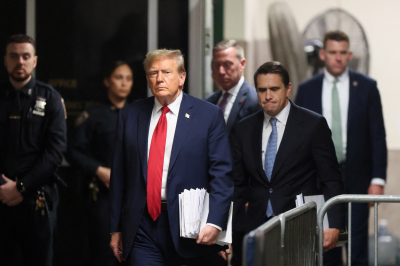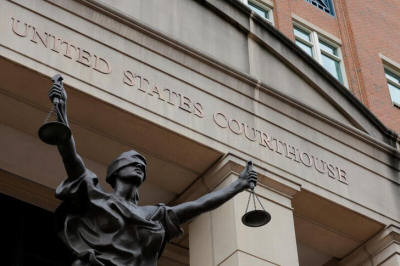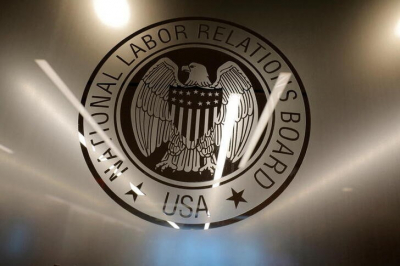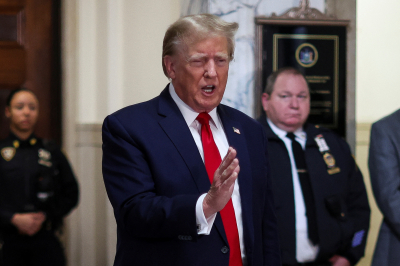
Republicans to Nominate Speaker for the Third Time on Tuesday
But there is still no guarantee that the next Speaker selected by the Republican Party will be able to secure the necessary 217 votes in the House of Representatives, as some lawmakers are not signing the "unity" pledge.
WASHINGTON – Three weeks after the ousting of Kevin McCarthy, House Republicans will gather behind closed doors on Tuesday morning to nominate a new candidate for the position of Speaker – their third attempt at filling the role.
In-fighting within the Republican Party has prevented Republicans from reaching an agreement on McCarthy's successor, a Californian Republican. Two previous Republican candidates withdrew from the race after failing to secure the votes needed to win in the chamber, leaving the House of Representatives in a state of unprecedented chaos, with a government shutdown potentially just weeks away and raging conflicts in Ukraine and the Middle East.
"The world is burning around us, and American leadership is needed. And you can't have a full complement of American leadership if the House isn't functioning," said Rep. Steve Womack, an Arkansas Republican, on "Meet the Press NOW" on NBC, emphasizing the need for his colleagues to act and rally around a new leader.
"The world is watching; our adversaries are paying attention. And, you know, it doesn't shine a good light on the democratic institutions that we all took an oath to protect," he added. "So, let's hope and pray that this week goes well."
A secret ballot will reduce the eight declared candidates for Speaker to one. In each round of Tuesday's voting, the candidate with the fewest votes will be eliminated until a single candidate receives a simple majority of those present in the room. But even then, there is no guarantee that the Republican Party's candidate will secure the Speaker's gavel in a public vote, which could occur as soon as Tuesday.
Due to the razor-thin Republican majority and Democrats uniting around Minority Leader Hakim Jeffries of New York, the next Republican Party candidate will need the support of 217 out of 221 Republican lawmakers.
The two previous Republican Party candidates – Majority Leader Steve Scalise of Louisiana and Judiciary Committee Ranking Member Jim Jordan of Ohio – did not come close to this magic number and were forced to drop out. Jordan's decision to exit the race on Friday, after three unsuccessful votes and an internal vote of no confidence from colleagues, left a void that all filled.
By the weekend's deadline, nine candidates had thrown their hats in the ring, including House Majority Leader Tom Emmer of Minnesota, the No. 3 Republican and chief vote-counter, who is seen as the favorite to win this nomination. Another was little-known Rep. Dan Meuser of Michigan, a former businessman who dropped out on Monday evening, immediately after presenting his case to colleagues at a candidate forum.
It is far from clear whether the next candidate will be able to muster 217 votes. Some lawmakers, including Reps. Ralph Norman and Chip Roy, both Texas Republicans, told reporters on Monday when colleagues were gathering that they would not sign the "unity" pledge to support the chosen Speaker until they know who it is.
"I'm not going to do it," said Norman, a member of the Freedom Caucus.
Another obstacle is that the vote on the Jordan River flooding has galvanized some typically quiet factions, including Republicans in swing districts. This includes Rep. Mark Molinaro, R-N.Y., who switched from "yes" to "no" on the Jordan issue and said on Monday that members of swing districts "intend to use our votes" and elect a new Speaker who is attuned to their concerns.
"I need a Speaker who recognizes the unique interests of members like myself and the constituents I represent," Molinaro said.
The eight candidates who are still in the running include Emmer; Vice Chair of the Republican Conference Mike Johnson of Louisiana; Chairman of the Republican Policy Committee Gary Palmer of Alabama; Chairman of the Republican Study Committee Kevin Hern of Oklahoma, who previously owned a McDonald's franchise and on Monday delivered hamburgers to colleagues; former Rules Committee Chairman Pete Sessions of Texas; Jack Bergman of Michigan, a retired Marine Corps lieutenant general; Byron Donalds of Florida, a member of the far-right Freedom Caucus; and Austin Scott of Georgia, who challenged Jordan for the Speaker's position last week.
"We have nine people who have declared their statement. We easily have nine more, maybe 90, who will look in the mirror and see the next Speaker of the House," Womack said on Monday evening before Meuser dropped out. "So, I would just say to you, we need to unify around somebody."
Some of the remaining eight, including Emmer, Johnson, and Hern, have been on the phone with former President Donald Trump, who said he is likely to remain neutral in the Tuesday race. Trump has endorsed Jordan and acknowledged that it's tough to get 217 votes in the House of Representatives.
"That minimal threshold is very tough. I've said there's only one person that can do it, and you know who that is? Jesus Christ," Trump said on Monday during a visit to New Hampshire. "If he came and said, 'I want to be the Speaker,' I think we'd have a problem. Other than that, I haven't seen anybody that could guarantee that."
Notably, at a recent Republican Party meeting, a lawmaker stood up and said that not even Jesus can be elected Speaker in this majority, according to Rep. Mark Alford, a Republican from Missouri.





